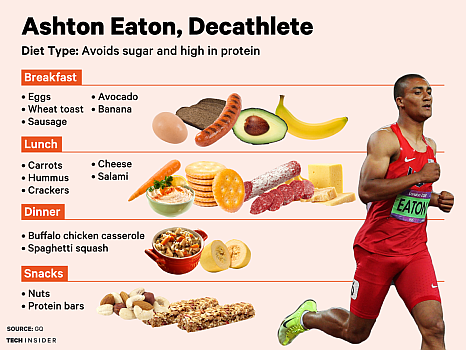
When it comes to endurance sports such as running, nutrition plays a crucial role in supporting performance and aiding recovery. Proper fueling can make a significant difference in an athlete’s ability to sustain energy levels, enhance endurance, and optimize overall performance. This article will explore the best foods for endurance athletes, focusing on their nutritional benefits and how they contribute to improved running performance.
The Importance of Carbohydrates
Carbohydrates are the primary source of fuel for endurance athletes. They provide the necessary energy for muscles to perform optimally during long runs. Complex carbohydrates like whole grains, fruits, vegetables, and legumes should form the base of an athlete’s diet. These foods are rich in fiber, vitamins, and minerals that support overall health and provide sustained energy.
Protein for Muscle Repair
Protein is another crucial component of an endurance athlete’s diet. It aids in the repair and rebuilding of muscle tissues damaged during intense workouts. Lean sources of protein such as poultry, fish, tofu, legumes, and plant-based protein powders should be a regular part of an athlete’s meals. It is recommended to consume protein-rich foods within 30 minutes to an hour after training to optimize muscle recovery.
Healthy Fats for Long-lasting Energy
Including healthy fats in the diet of endurance athletes offers long-lasting energy and supports overall health. Foods rich in omega-3 fatty acids, such as fatty fish, avocados, nuts, and seeds, can help reduce inflammation, support cardiovascular health, and provide sustained energy throughout long runs. It is important to consume fats in moderation but include them in each meal to aid in the absorption of fat-soluble vitamins.
Hydration for Optimal Performance
Proper hydration is of utmost importance for any endurance athlete. Water is the primary choice when it comes to staying hydrated. However, for longer runs, sports drinks or electrolyte-rich beverages can be beneficial for replenishing essential minerals lost through sweat. It is vital to drink fluids before, during, and after workouts to maintain proper hydration levels and support optimal performance.
Important Micronutrients
In addition to macronutrients, endurance athletes must also pay attention to their micronutrient intake. Iron, calcium, and vitamins such as vitamin C, vitamin D, and the B vitamins are crucial for overall health and performance. Iron helps deliver oxygen to muscles, while calcium strengthens bones and teeth. The B vitamins play a role in energy metabolism, and vitamin D supports bone health. Including a variety of fruits, vegetables, dairy products, lean meats, and whole grains in the diet helps ensure an adequate intake of essential micronutrients.
The Role of Pre-Run and Post-Run Nutrition
Pre-run and post-run nutrition are key to optimizing performance and aiding in recovery. Before a run, it is important to consume a balanced meal or snack that includes carbohydrates for energy and a small amount of protein for sustained fuel. This combination helps maintain stable blood sugar levels and provides enough energy to support the run. After a run, it is crucial to replenish glycogen stores by consuming a mix of carbohydrates and protein. This assists in muscle repair and reduces muscle soreness.
Meal and Snack Ideas
Here are some meal and snack ideas for endurance athletes: Whole grain toast with avocado and eggs Grilled chicken or tofu with quinoa and steamed vegetables Salmon or tuna salad with leafy greens and mixed vegetables Greek yogurt with berries and nuts Homemade energy bars with oats, nuts, and dried fruits For endurance athletes, proper nutrition is essential for improving performance, enhancing endurance, and aiding in recovery. A well-balanced diet that includes a variety of complex carbohydrates, lean proteins, healthy fats, and essential micronutrients can deliver optimal results. It is important to tailor nutrition to individual needs and experiment with different foods to find what works best for each athlete. By prioritizing running nutrition, endurance athletes can unlock their full potential and achieve their goals.

